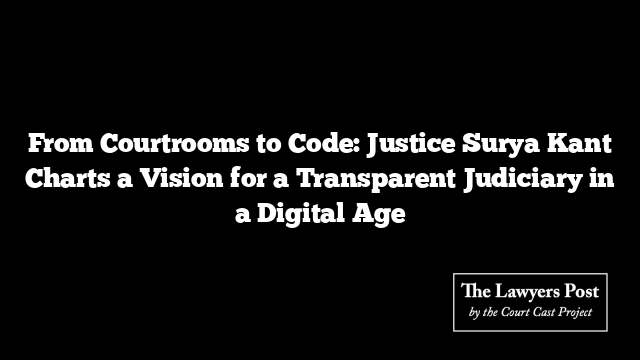In a week that spanned courtrooms, campuses, and tech campuses across Washington State, Justice Surya Kant—poised to become India’s next Chief Justice—delivered a series of speeches that stitched together threads of law, technology, and democratic integrity with careful conviction.
At the heart of his message: the collegium system may be flawed, but its role as a bulwark against executive overreach is irreplaceable.
Speaking at Seattle University’s Roundglass India Centre, Justice Kant didn’t dodge the growing chorus questioning the opacity of judicial appointments. Instead, he leaned into the critique. “Imperfect, yes. But the collegium remains a critical safeguard,” he told his audience, underscoring the Supreme Court’s recent efforts to make its internal workings more transparent. The legitimacy of the judiciary, he emphasized, is “most enduring when exercised with humility.”
Kant’s U.S. tour saw him navigating audiences ranging from legal scholars to tech innovators. From the Washington Supreme Court in Olympia to Microsoft’s high-tech campus in Redmond, the judge used every podium to reinforce a common point: courts are not isolated temples of justice—they are part of the democratic bloodstream.
In Olympia, he drew parallels between America’s Marbury v. Madison and India’s Kesavananda Bharati, presenting both as landmark moments where judges stepped up as constitutional sentinels rather than passive scribes.
By the time he reached Redmond, his message had taken a digital turn. With India’s judiciary embracing AI tools like the SUVAS language engine and the LegRAA legal research assistant, Justice Kant cautioned against the overreach of automation. “Justice is not a product to be optimized,” he warned. “It’s a principle to be honoured.”
He flagged the risks of AI hallucinations—chatbots inventing legal precedents—and urged that while technology could democratize access to justice, it must never undermine the moral clarity and human discernment that justice demands.
The tone in Seattle turned almost lyrical as he invoked both Rabindranath Tagore and Martin Luther King Jr., framing the judiciary not as a power structure, but as a “quiet sentinel,” preserving the soul of democracy.
“Democracy,” he said, “is not a gift to be received—it is a discipline to be practiced.”
Whether invoking constitutional morality or critiquing the promises of artificial intelligence, Justice Kant’s message was clear: the judiciary must evolve—but not at the cost of its conscience.





